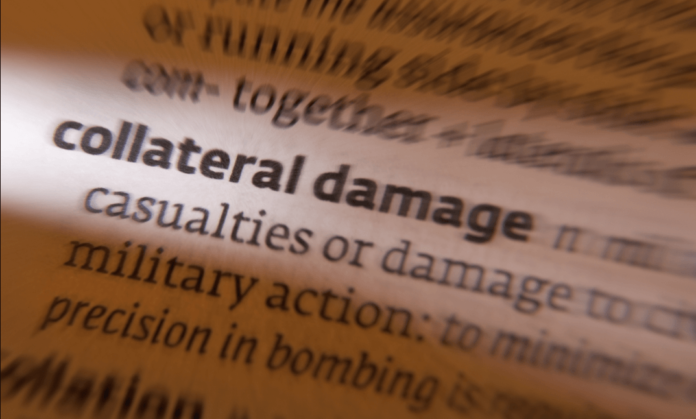In today’s world, the term “collateral damage” is often heard in various contexts, from military operations to business strategies. But what does it truly mean? This article will delve into the concept of collateral damage meaning, exploring its definitions, implications, and real-life examples. By the end of this read, you’ll have a comprehensive understanding of this frequently used phrase.
Understanding Collateral Damage meaning
Collateral damage meaning, in its essence, refers to unintended or secondary damage or harm that occurs as a result of a particular action or event. This term is predominantly associated with military operations, where it describes the unintended harm caused to civilians, infrastructure, or non-combatants while targeting military objectives.
The Origin and Evolution of the Term
The phrase “collateral damage” has its roots in military terminology, dating back to the 20th century. Originally, it was used in a purely military context to describe the inadvertent consequences of strategic bombings during World War II.
Collateral Damage in Warfare
Historical Examples
One of the most infamous instances of collateral damage was the bombing of Dresden in 1945. The Allied forces sought to cripple Nazi Germany’s infrastructure, but the devastating consequences for civilians were immense.
Modern Warfare
In contemporary warfare, minimizing collateral damage remains a complex challenge. Precision-guided munitions and advanced targeting technology have improved accuracy, but the risk persists.
Collateral Damage in Business
Economic Implications
In the corporate world, collateral damage may not involve physical harm but can have significant economic repercussions. For example, a company’s aggressive cost-cutting measures may inadvertently harm employee morale and productivity.
Reputational Consequences
A business’s actions, even if well-intentioned, can lead to collateral damage in the form of damaged reputation. A poorly handled public relations crisis can result in lasting negative perceptions.
Legal Aspects of Collateral Damage
International Law
International humanitarian law attempts to mitigate collateral damage during armed conflicts. It outlines principles for distinguishing between combatants and non-combatants and provides guidelines for proportionality in the use of force.
Civil Law
In civil law, collateral damage can lead to lawsuits. For instance, environmental damage caused by industrial activities can result in legal actions seeking compensation.
Mitigation and Prevention Strategies
Efforts are ongoing to develop strategies to minimize collateral damage. This includes refining military tactics, implementing ethical business practices, and adhering to environmental regulations.
The Ethical Dilemma
The concept of collateral damage raises ethical questions about the acceptable cost of achieving a particular goal. How much harm to innocent parties is justifiable in pursuit of a greater good?
Collateral Damage in Popular Culture
Movies
Hollywood has explored the theme of collateral damage in numerous films, often portraying the moral dilemmas faced by characters who must make difficult choices.
Literature
Many books delve into the profound consequences of collateral damage, shedding light on its emotional and psychological toll.
Collateral Damage in the Digital Age
In the era of information warfare and cyberattacks, collateral damage has extended to the digital realm. Innocent individuals and organizations can become victims of hacking and data breaches.
The Humanitarian Perspective
Those affected by collateral damage. Their efforts focus on alleviating suffering and helping communities recover.
Lessons from Collateral Damage
We can draw lessons from collateral damage scenarios, emphasizing the need for better planning, improved technology, and ethical decision-making.
The Lingering Impact
Collateral damage often leaves a lasting impact on affected individuals and communities. Recovery efforts may take years or even decades.
Balancing Act: Necessity vs. Consequence
Finding the right balance between achieving objectives and minimizing collateral damage remains a significant challenge in both military and civilian contexts.
Striving for Accountability
Efforts to hold responsible parties accountable for collateral damage incidents are essential to prevent future occurrences. Read more…
Conclusion: Reflecting on Collateral Damage
In conclusion, collateral damage is a multifaceted concept that transcends military actions and extends to various aspects of our lives. Understanding its implications, learning from historical and contemporary examples, and striving for accountability are vital steps toward minimizing its impact.
FAQs
- What is the legal framework for addressing collateral damage in armed conflicts?
- Are there any notable examples of businesses facing collateral damage due to their actions?
- How do movies and literature explore the theme of collateral damage?
- What are the key challenges in preventing collateral damage in modern warfare?
- How can businesses mitigate the risk of reputational collateral damage during crises?

